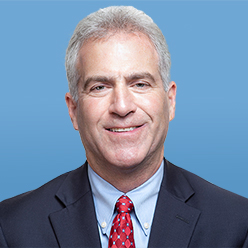“This summit,” Khaled Al-Suleiman, a Saudi Arabian columnist, wrote of President Biden’s upcoming trip to Saudi Arabia, “may be a golden opportunity for the American president to restore the [regional countries’] faith in America as a trustworthy historical ally with a solid policy that can be relied upon.
“For the alternative,” he warned, “is that these countries will actually change the map of their international alliances in order to safeguard their interests and enhance their ability to overcome the miscalculations of some of their traditional Western allies regarding the need to defend them from the threat of Iran, whose aggression is known to all and which never stops threatening and igniting fires and wars in the region!”
As Riyadh was planning to seek Biden’s assurances that Washington remains a reliable partner in confronting Iran’s regional expansionism, U.S. and Iranian officials met in Doha in hopes of reviving the 2015 global nuclear deal with Iran — the very deal that Riyadh opposes because it won’t prevent Iran from developing nuclear weapons over the long term and because it would do nothing to curb Tehran’s terror sponsorship and other destabilizing regional activities.
For Washington, the question is whether it can have its cake and eat it too — reassure a leader of Sunni Arab nations that seek to contain Shia Iran and reach a nuclear modus vivendi with the latter. The risk, of course, is that Washington will lose on both fronts — fail to revive the nuclear deal and feed more concerns among Saudi officials that Riyadh may need to reconsider its heavy reliance on Washington for regional security.
To be sure, Biden faces an unusually complicated global landscape that has forced him to backtrack on his campaign promise to make Riyadh a “pariah” over human rights, particularly over the murder of Washington Post columnist Jamal Khashoggi that the U.S. intelligence community believes was ordered by Saudi Crown Prince Mohammed bin Salman (MBS).
The unprecedented sanctions that Washington and its allies have imposed on Russia, along with the growing military arsenal they have sent to Ukraine, have not forced Vladimir Putin to re-think the aggression that has shaken the post-war order. After stalling elsewhere on the ground, Russia’s military is making progress in capturing territory in Ukraine’s eastern region while shelling civilian sites in hopes of demoralizing Ukrainians and prompting Kyiv to surrender.
Moreover, sanctions on Russia’s oil sector have sent global oil prices much higher. That, and decisions by China and India to buy more Russian oil, have enabled Moscow to make more money from oil sales than before it invaded Ukraine. At the same time, U.S. consumers are paying much more at the pump, helping to drive inflationary pressures that prompted the Federal Reserve to raise interest rates dramatically. That move, in turn, is threatening to spark a U.S. recession.
Not surprisingly, Biden hopes to convince Saudi Arabia and other Gulf states to increase oil production in hopes of lowering prices and, with mid-term congressional elections looming, to give himself a political boost.
Riyadh, however, seems emboldened by Biden’s decision to scrap the “pariah” talk and visit the kingdom.
“[T]he Biden administration must prove that its renewed interest in the Gulf states is not [just] circumstantial and is not just a constraint imposed by the need for oil,” the pro-government Al-Riyadh newspaper wrote in an editorial. “Moreover, it must prove with deeds, not just with words, that it is still committed to the security of the Gulf and [recognizes that] the Gulf [states] have urgent needs that must be considered.”
Biden’s hopes of strengthening U.S.-Saudi relations is just one more reason to wonder why the administration still wants to revive a nuclear deal that, at best, would constrain Iran’s nuclear pursuits only until the deal expired in the coming years.
As the Saudis, other Gulf nations, and Israel have complained relentlessly, a revived deal would do nothing to constrain Iran’s nuclear-related ballistic missile program or force Tehran to change its regional behavior.
Nor would it force Iranian officials to cooperate with nuclear inspectors any more than they did before President Trump withdrew the United States from the deal in 2018. After the International Atomic Energy Agency passed a resolution in early June to urge Tehran to fully cooperate with inspectors who were probing suspected nuclear activity at three undeclared sites, Tehran responded that it would disconnect 27 cameras at nuclear-related sites that were designed to monitor its compliance with the nuclear deal.
All in all, Biden’s commitment to reviving the nuclear deal is not only problematic in terms of curbing Iranian nuclear activity, but it also threatens to undercut his effort to restore relations with Riyadh that have become increasingly important to U.S. strategic interests.
